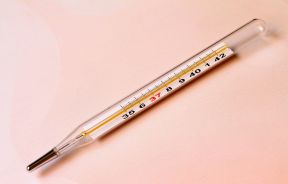Tyson Gay Tests Positive For Banned Substance, Joins Jamaica’s Asafa Powell And Sherone Simpson In Failing USADA Drug Test

American 100-meter record holder Tyson Gay, who has long championed a career in drug-free athletics, tested positive for an unnamed banned substance following a May 16 out-of-competition drug test.
Gay's failed test comes as the third among track and field stars recently, joining Jamaica's Asafa Powell and Sherone Simpson who both failed drug tests in June. Neither Gay nor Powell will compete in the upcoming world championships in Moscow next month, stripping the 100-meter race of even more of its luster as the sport of track and field continues to erode.
Gay's Failed Test
Gay did not disclose the name of the banned substance. The 30-year-old sprinter, who won the 100 and 200 meters at U.S. nationals last month and currently holds the year's fastest time in the 100m, said testing positive came as something of a letdown to him.
"I don't have a sabotage story. I don't have any lies. I don't have anything to say to make this seem like it was a mistake or it was on USADA's hands, someone playing games," said Gay, who fought back sobs in a telephone interview. "I don't have any of those stories. I basically put my trust in someone and I was let down."
He did not specify to whom we was referring.
First-time offenders in track and field typically face two-year bans, although sometimes extenuating circumstances reduce that penalty. Gay and his coach, Lance Brauman, said this was the case.
"He mentioned that he (trusted) someone and that person was untrustworthy at the end the day," Brauman told the Associated Press in a phone interview. "Maybe I'm naive, but I believe him."
Gay, who also won the world championship in the 100, 200 and 4x100 relay in 2007, took part in the U.S. Anti-Doping Agency's "My Victory" program, which gives athletes the ability to advocate for clean competition through enhanced testing and awareness.
The B-sample of Gay's test will be tested soon, the sprinter said, referring to the second test performed on an athlete's urine or blood to check for banned substances.
In many professional sports, particularly the Olympics, athletes required to get drug tested will provide two samples, an A- and B-sample. If an A-sample comes back positive for a certain substance, the athlete's B-sample gets tested for the same substance to ensure no mistake was made.
"It is not the news anyone wanted to hear," Max Siegel, the CEO of USA Track and Field, said in a statement, "at any time, about any athlete."
Drug Tests In Jamaica
Asafa Powell and Sherone Simpson now add their names to a growing list of Jamaican sprinters who have tested positive for a stimulant called oxilofrine. Both Powell and Simpson ardently denied any allegations that they knowingly took the stimulant into their systems.
"I am not now - nor have I ever been - a cheat," Powell said. "My team has launched an internal investigation and we are cooperating with the relevant agencies and law enforcement authorities to discover how the substance got in my system."
Simpson echoed Powell's sentiments, claiming she "would not intentionally take an illegal substance of any form" into her system.
In Sunday's editions of Jamaica's newspaper The Gleaner, news broke that five athletes had tested positive for illegal substances. Paul Doyle, the agent who represents Powell and Simpson, confirmed to the Associated Press that his sprinters were among them.
Track and field arguably comprises a much larger portion of Jamaica's culture than in the United States, where the island calls home to 28 Olympic track medals in the last three years alone. The recent slew of substance abuse scandals has left the country questioning the vivacious hope it once had.
"This does not auger well for track and field globally," said Rashalee Mitchell, a 29-year-old assistant social sciences lecturer at Jamaica's campus of the University of the West Indies. "It is fast serving to taint ... our proud and long-standing reputation of producing strong, excellent, raw, homegrown talent that has excelled on the world stage without any drug-related enhancement."
Jamaican Olympic gold medalist, Veronica Campbell-Brown, tested positive for a banned diuretic one month ago. Her case is currently under panel review and is likely to receive a lighter penalty than the potential ban Gay, Powell, and Simpson face.
The rest of the track world is noticing, too. Although the three sprinters' situation doesn't have the severity of steroid users in decades past, such as with Ben Johnson and Marion Jones, track and field is still struggling to maintain a clean image in the world of professional sports.
Four-time Olympic medalist and sprint analyst Ato Boldon called it a "difficult day because track and field fans are left not knowing what to believe."
"Everyone has that favorite, that one guy, 'Hey, this is the guy I've always been a supporter of his,"' Boldon said. "Asafa and Tyson are certainly two people who a lot of track fans have loved and admired for a long time. Unfortunately, they failed drug tests."
Published by Medicaldaily.com



























